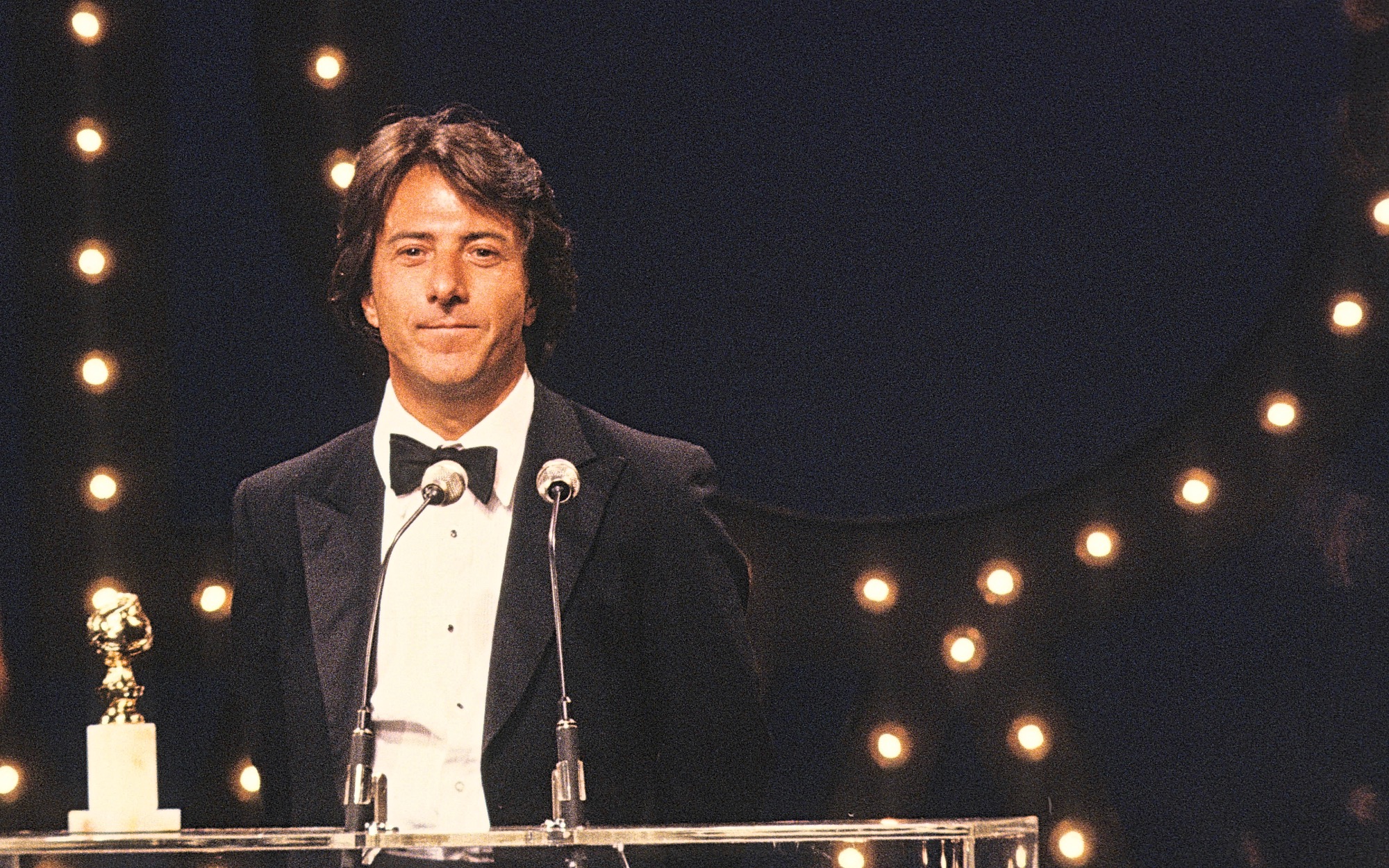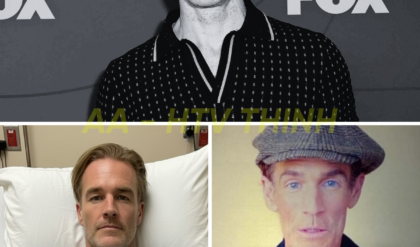Dustin Hoffman es un nombre que resuena con fuerza en la industria cinematográfica, y su victoria en los Premios Oscar por su papel en *Kramer vs.
Kramer* (1979) marcó un hito significativo en su carrera.
Este reconocimiento no solo resaltó su talento como actor, sino que también reflejó un cambio en la narrativa del cine durante la década de 1970, un período caracterizado por historias más complejas y personajes más humanos.

La ceremonia de los Oscar de 1980 fue un evento memorable, donde Hoffman compitió contra gigantes del cine como Jack Lemmon, Al Pacino, Roy Scheider y Peter Sellers.
Cada uno de estos actores había dejado una huella imborrable en la pantalla grande, pero fue Hoffman quien se llevó el codiciado galardón a Mejor Actor.
Su actuación en *Kramer vs.
Kramer* fue aclamada por su autenticidad y profundidad emocional, lo que le valió no solo el Oscar, sino también el respeto y la admiración de críticos y colegas.
El discurso de aceptación de Hoffman fue tanto emotivo como reflexivo.
Comenzó agradeciendo a sus padres y a todos los involucrados en la producción de *Kramer vs.
Kramer*, incluyendo al productor Stanley Jaffe y al director Bob Benton.
Su gratitud se extendió a sus compañeros de trabajo, mencionando a Meryl Streep y a Justin Henry, el joven actor que interpretó a su hijo en la película.
Hoffman también hizo una reflexión sobre la comunidad artística, expresando su incredulidad al haber ganado frente a otros actores tan talentosos.
“Me niego a creer que vencí a Jack Lemmon, a Al Pacino, a Peter Sellers.
Somos parte de una familia artística”, dijo, subrayando la importancia del trabajo en equipo en el cine.

Este comentario resonó profundamente, recordando a todos que el éxito en la industria del entretenimiento es el resultado de un esfuerzo colectivo.
La película *Kramer vs.
Kramer*, dirigida por Robert Benton, aborda temas complejos como el divorcio, la paternidad y la lucha por la igualdad de género.
Hoffman interpreta a Ted Kramer, un hombre que se enfrenta a un cambio drástico en su vida cuando su esposa, Joanna (interpretada por Meryl Streep), decide dejarlo.
La historia se desarrolla en el contexto de la lucha de Ted por equilibrar su carrera y su nueva responsabilidad como padre.
El impacto de *Kramer vs.
Kramer* fue monumental.
No solo capturó la atención del público, sino que también abrió un diálogo sobre las dinámicas familiares y los derechos de los padres en un momento en que tales temas no eran comúnmente discutidos en la sociedad.
La actuación de Hoffman fue aclamada por su autenticidad y profundidad emocional, lo que le valió no solo el Oscar, sino también el respeto y la admiración de sus colegas y críticos.
La película también fue pionera en su representación de la paternidad y la maternidad.

En una época en que las mujeres eran a menudo vistas como las principales cuidadoras, *Kramer vs.
Kramer* desafió estas normas al mostrar a un padre que lucha por ser un buen padre mientras navega por los desafíos de la vida moderna.
Esto resonó con muchas familias y ayudó a cambiar la percepción de los roles de género en las relaciones familiares.
Dustin Hoffman ha dejado una marca indeleble en el cine.
Con una carrera que abarca más de cinco décadas, ha demostrado ser uno de los actores más versátiles de su generación.
Desde su papel icónico en *The Graduate* (1967) hasta su actuación en *Rain Man* (1988), Hoffman ha explorado una variedad de personajes complejos, cada uno con su propia narrativa y profundidad emocional.
El triunfo de Hoffman en los Oscar de 1980 por *Kramer vs.
Kramer* no solo celebró su talento individual, sino que también representó un cambio en la percepción del cine y la narrativa en Hollywood.
Su discurso de aceptación, lleno de humildad y reconocimiento hacia sus colegas, resuena aún hoy como un recordatorio de la importancia de la colaboración en el arte.
La historia de Hoffman es un testimonio del poder del cine para explorar y reflejar la condición humana, y su legado continúa inspirando a nuevas generaciones de actores y cineastas.
Su viaje desde un joven actor en busca de oportunidades hasta convertirse en un ícono del cine es un relato que merece ser contado y celebrado en cada ceremonia de premios.

Además, la influencia de Hoffman se extiende más allá de la actuación.
Ha sido un defensor de causas sociales y ha utilizado su plataforma para abogar por la igualdad y la justicia.
Este compromiso social ha añadido una capa adicional a su legado, haciendo de él no solo un gran actor, sino también un ser humano admirable.
En conclusión, la victoria de Dustin Hoffman en los Premios Oscar por *Kramer vs.
Kramer* no solo solidificó su lugar en la historia del cine, sino que también abrió la puerta a conversaciones más profundas sobre la familia y las relaciones en la sociedad contemporánea.
Su legado perdurará, inspirando a generaciones futuras a contar historias que importan y a interpretar personajes que resuenan con la experiencia humana.
.
.
.
.
.
.
.
.
.
.
.
.
.
.
.
.
.
.
.
.
I’m very pleased to tell you the nominees for outstanding performance by an actor in a leading role and to remind you that each of them has given the screen a remarkable body of work during their careers those nominees are Dustin [Applause] Hoffman from The Young benam of The Graduate the unforgettable ratso Rizzo and Midnight Cowboy and on through the S Jerian Indian chief in Little Big Man the strange and courageous prisoner in papon the charismatic and controversial Lenny Bruce and the brilliant reporter in All the President’s Men and now this
00:42
year Kramer versus [Applause] Kramer Jack [Applause] [Music] Lemon we’ve watched through the years of Comedy beginning with Mr Roberts and Some Like It Hot and seen him become all of us in America at times in the roles he’s played desperate searching frantic lost befuddled and eventually caught up in the largest issues that will perhaps ever face Mankind in the picture for which he is nominated this year The China [Applause] Syndrome Al Pacino he is virtually a specialist in roles that show the darker side of contemporary life he has brought to
01:34
every role an intensity that deepens the screen and broadens The Human Experience his films have included panic in Needle Park scarecrow Serpico Godfathers 1 and two Dog Day Afternoon and the role for which he is nominated tonight the young lawyer in and justice for [Applause] all Roy shider [Applause] if there is a sort of every man among these actors it is he his film roles have been earthy accessible vulnerable imperfect men but clearly and recognizably human beings all his films have included Clute The French
02:15
Connection Jaws the Sorcerer And tonight he is nominated for his role in all that [Applause] [Music] jazz and Peter sers many of the film roles he’s played became instant symbols and part of our language think for instance of Doctor Strange Love and the bumbling but Invincible inspector cluso it would appear that he has added another Unforgettable character to his collection this year with the performance for which he has nominated tonight Chanty Gardner in being there [Applause] [Music] [Applause] and the winner
03:06
is Dustin Hoffman and [Applause] [Music] [Applause] [Music] [Applause] [Music] [Applause] [Music] [Applause] [Music] thank you he has no genitalia and he’s holding a
04:17
[Applause] sword I’d like to thank my parents for not practicing birth control [Applause] I’m up here with mixed feelings I’ve been critical of the academy and for reason I’m deeply grateful for the opportunity to be able to work I’m greatly honored for being chosen by the producer Stanley jaffy and the director Bob Benton and to have worked and a family with them and with Merill and with Justin who if he loses again we’ll have to give him a Lifetime Achievement Award and to Jane Alexander and to Jerry Greenberg and to
05:17
Nester and to the crew on the film who is part of that family and to the crew and to the directors like Bob FY and Mike Nichols and John slesinger that I worked with for we are laughed at when we are up here sometimes for thanking but when you work on a film you discover that there are people who are giving that artistic part of themsel that goes beyond a paycheck and they are never up here and many of them are not members of the academy and we never hear of them but this Oscar is a symbol I think and it is given for appreciation from
06:05
those people whom we never see they are part of our life I refuse to believe that I beat Jack Lemon that I beat alucino that I beat Peter cers I refuse to believe that Robert Duval lost we are a part of an artistic family there are 60,000 actors in This Academy Pardon Me In The Screen Actors Guild and probably 100,000 in equity and most actors don’t work and a few of us are so lucky to have a chance to work with writing and to work with directing because when you’re a broke actor you can’t write you can’t paint
06:52
you have to practice accents while you’re driving a taxi cab and to that artistic family that strives for ex Excellence none of you have ever lost and I am proud to share this with you and I thank you [Applause] [Applause] [Music] I think you’ll all agree that was beautifully said for those of you who just join us at home this is day 164 of the Oscar telecast America has not forgotten you and President Carter is working on a plan for your release





